Pandit for Aksharabhyasam in Bangalore: Cost, Vidhi & Benefits
Are you looking for an expert pandit for Aksharabhyasam in Bangalore? Now you can book a trusted pandit easily with…
 0%
0%

In Hinduism, death does not mark the end but is the start of the soul’s journey to another existence. This is why various rituals are followed when a person dies. Among them, Terahvi Shanti Puja is done on the 13th day after a person’s death.
The ceremony is mostly conducted to assist the dead soul to attain peace and move towards liberation or Moksha.
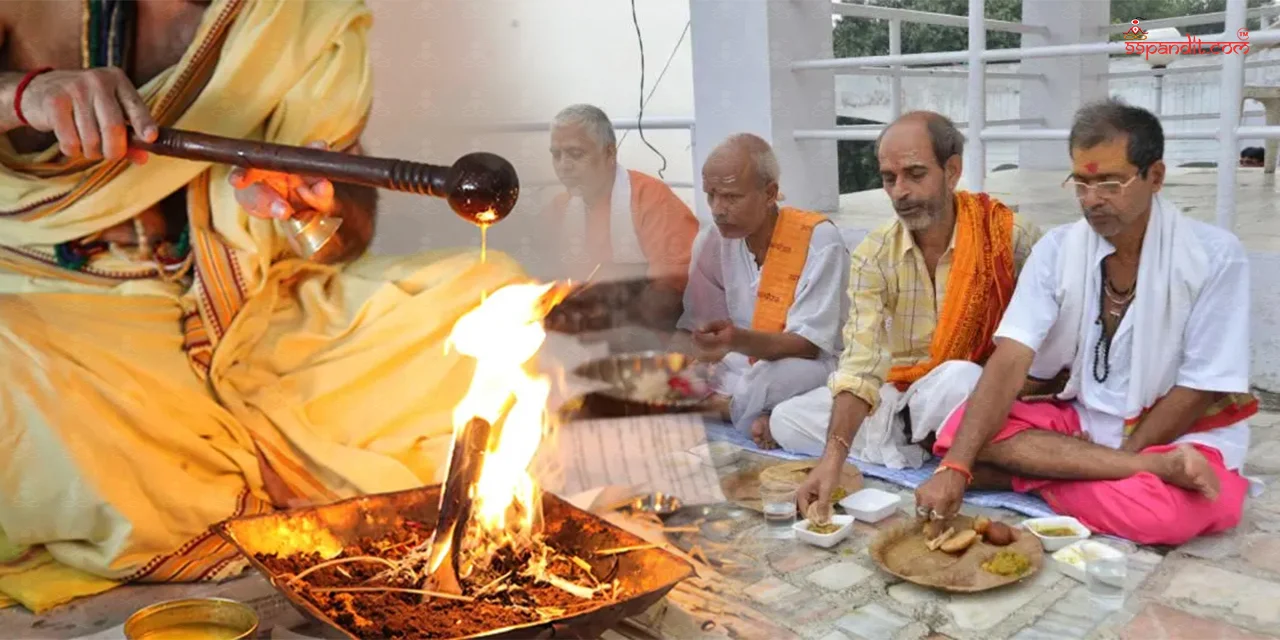
In terms of tradition, relatives, family members, and friends of the deceased individual sit together praying, conducting last rites, and offering gratitude before their death.
During this challenging period, it is essential to do the ritual with the right procedure and scriptural knowledge.
That is why it is crucial to conduct the ceremony under the guidance of a skilled and knowledgeable pandit to help the deceased soul rest in peace.
In this article, we will explain everything about the Terhavi Shanti Puja, its procedure, significance, and how you can book a qualified pandit. Let’s begin!
The 13th day after the death of a person is termed Terahvi or Terahva in Hinduism. Shanti Puja on this day is meant to request the soul that has departed to eternal rest to be at peace and have a smooth ride on the spiritual journey.
It is a time of intense grief for the family, yet it has great spiritual significance. As per Hindu beliefs, the soul of the person remains connected to earthly things till these 13 days before finally going to the afterlife.
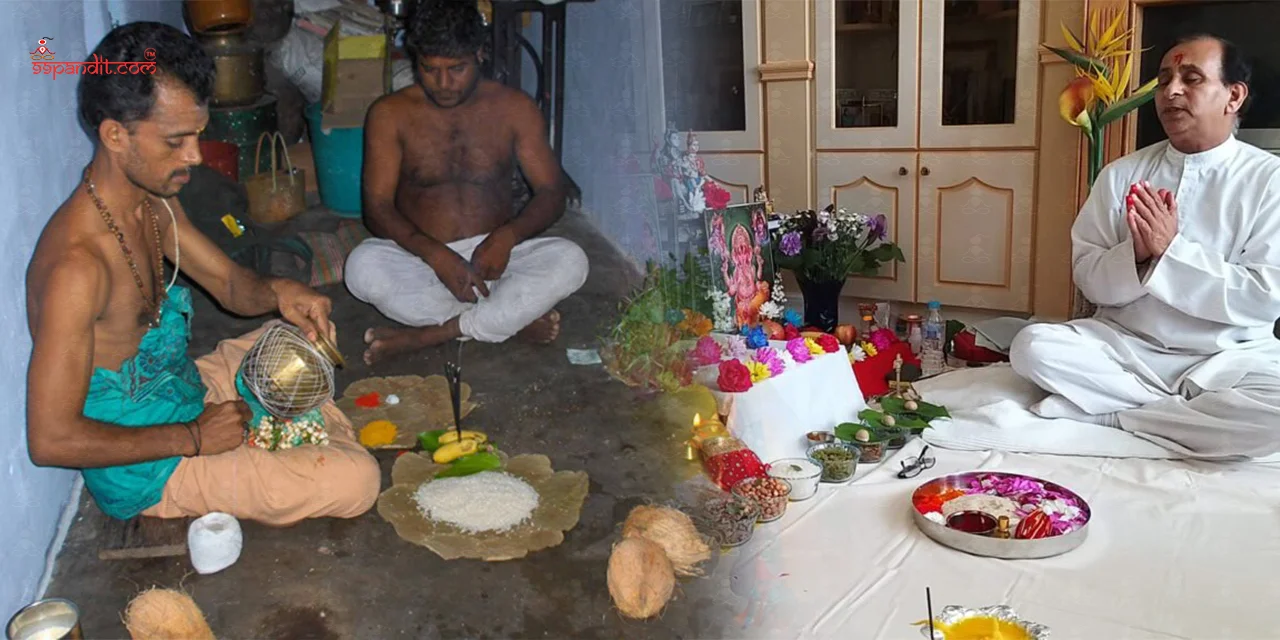
It is believed that the right procedure, mantra, and offering help the soul guide on its journey, achieve peace, and give their blessing to the family.
When we look at it spiritually, Terahvi Shanti Puja depicts the bond between the living and the deceased soul.
In the cultural aspect, it is a day on which family and friends gather to do certain rituals and support the suffering family, converting grief into remembrance and blessings.
The Terahvi is a profoundly sacred ritual in the Hindu culture. It is regarded as a significant ritual in the funeral ceremony as it helps guide them after death.
As per the ancient texts such as the Garuda Purana and the Vishnu Purana, the after-death soul stays in a midway state of “Preta” for the initial 13 days from the time of death.
It is held during this time that the soul neither fully leaves the world nor fully remains in the other world.
The terahvi day is often connected with the Shraddha ceremony and serves as a bridge that helps the soul in this complete transition possess.
With the correct procedure, chanting of the mantra, offering, and guidance of the pandit, the family can aid the soul move towards spirituality and attain Moksha.
The conversion from “Preta” (unsettled spirit) to “Pitru” (ancestor spirit) is said to be very essential for the departed soul to rest in peace and overall family well-being.
It signifies that death not only affects the physical body but also creates spiritual imbalances. Such imbalances need proper attention and ceremonial healing.
Trehavi is a mark of completion of his crucial transition phase and helps the family find a sense of closeness.
The Terahvi Shanti Puja is determined by various variations in various regions of India.
The adherence to the ritual remains the same, but its implementation varies. That is how honour is in other cultures:
The regional difference that we mentioned above tells the vibrant culture of India, making Terahvi Shanti Puja a more personal and significant practice.
The Terahvi Shanti Puja contains various holy rituals, and each of them has their own significance.
These ceremonies are performed with the help of a guidance pandit so that each step can be carried out following tradition.
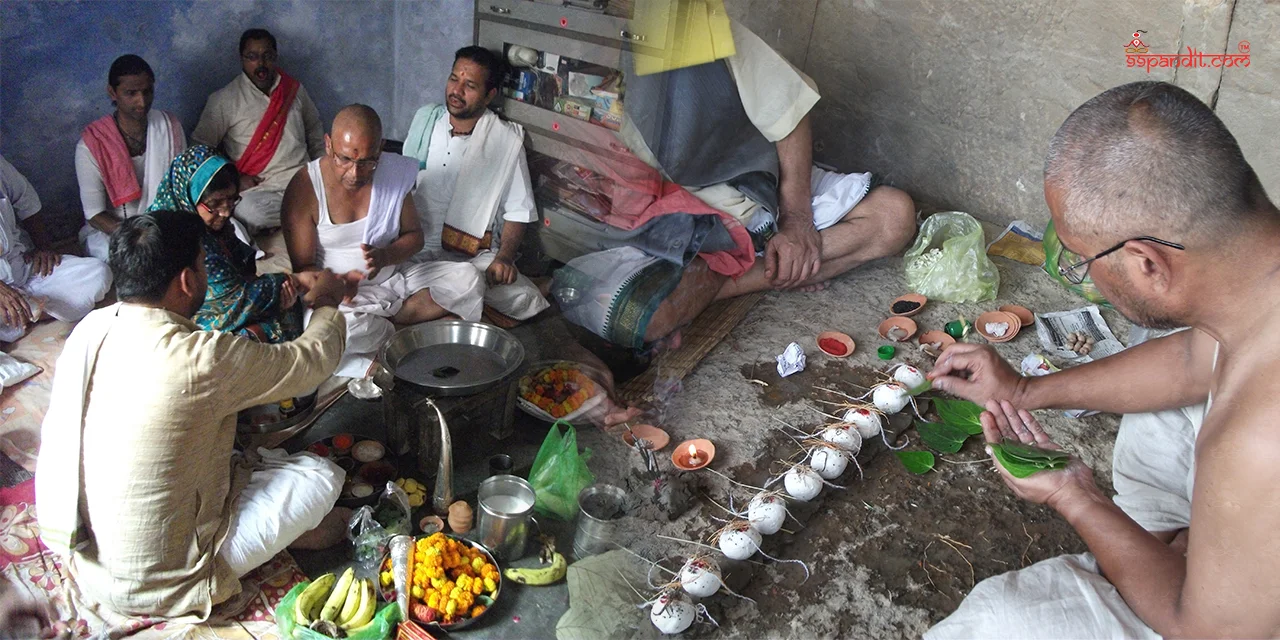
Let’s have a detailed view of the procedure of the Terahvi puja:
The rituals begin with prayers to Lord Ganesha for removing all the hurdles and the successful completion of the puja.
After this, a person from a family takes sankalp, where the date of death, a certain Trpiad Nakshatra (constellation), and the Tripad Tithi (lunar day) are said.
A Pind is a rice ball that is prepared with rice and sesame seeds and is offered to the deceased while asking for their blessings.
A mixed of water with black sesame seeds is offered while reciting specific mantras to appease the departed soul.
In this, a fire is lit up in the Havan Kund and special mantras are recited by the Pandit to cleanse the environment and help the deceased soul move towards liberation.
After the homan, the family feeds food to thirteen Brahmins and makes a donation to needy people to fulfil the ritual with thankfulness.
The ceremony is not merely a religious act but a ritual packed with emotions, love, respect, and the family’s last offering to their deceased.
Organizing the Terahvi Shanti Puja requires a proper knowledge of rituals, mantras, and traditions.
This is where a qualified pandit can make sure that each of the steps with done with utmost care and precision.
Below, we have mentioned the reason why having a pandit by your side simplifies the puja process:
1. Right Vidhi and Mantras: With deep knowledge about Vedic science and customs, a pandit ensures the correct procedures and mantras. It makes the Shanti puja more meaningful and effective.
2. Guidance on Puja Samagri and Rituals: From helping the family in arranging the puja items to guiding in each ritual, the pandit simplest every procedure of the family.
3. Peace of Mind for the Family: In this hard time, the family also feels good and has peace of mind since a competent pandit conducts the ritual well.
4. Preserving Traditional Practices: A well-qualified pandit still preserves the traditional practices in performing the Terahvi Puja. They ensure that the transmission of these traditions to the new generation is done in honour.
For a hassle-free experience, you can simply book a verified and Vedic Pandit from 99Pandit. It is a one-stop store for all your puja-related services.
Doing the Terahvi Shanti Puja with the right procedure and faith can help both the family and the deceased person’s attention, emotional, and spiritual advantages. Let’s have a look at some of them:
Carrying out Terahvi Puja helps the soul in separating from human relationships and achieve peace after death. It is considered to aid the ancestors find peace and move on their spiritual pathway.
When done with pure heart and intention, Terahvi rituals help families welcome blessings from ancestors and divine energies. These blessings are said to bring protection, harmony, and good luck.
The chanting of Vedic mantras and conducting havan during the puja cleanses out the atmosphere. It eliminates all the negative energies and creates a soothing environment in the home.
It is believed that doing Terahavi Shnati Puja helps the departed soul get free from the life of birth and death. Thus, making a soul take a step forward towards the Moskha.
The process of gathering together with the family to carry out the last rites rituals provides emotional support.
It lets family members accept the death and gain strength to continue with a feeling of closure.
As per Hindu tradition, praising ancestors through post-death rituals is considered a great responsibility. That’s why doing this puja allows the family to pay ancestral debts and seek blessings.
If you’re also seeking a Pandit for Terahvi Shnati Puja, then we’ve got you. Booking a pandit has now become very easy and quick with 99Pandit.
The platform lets users book a pandit while sitting at their home and eliminates the rely on last-minute arrangements.
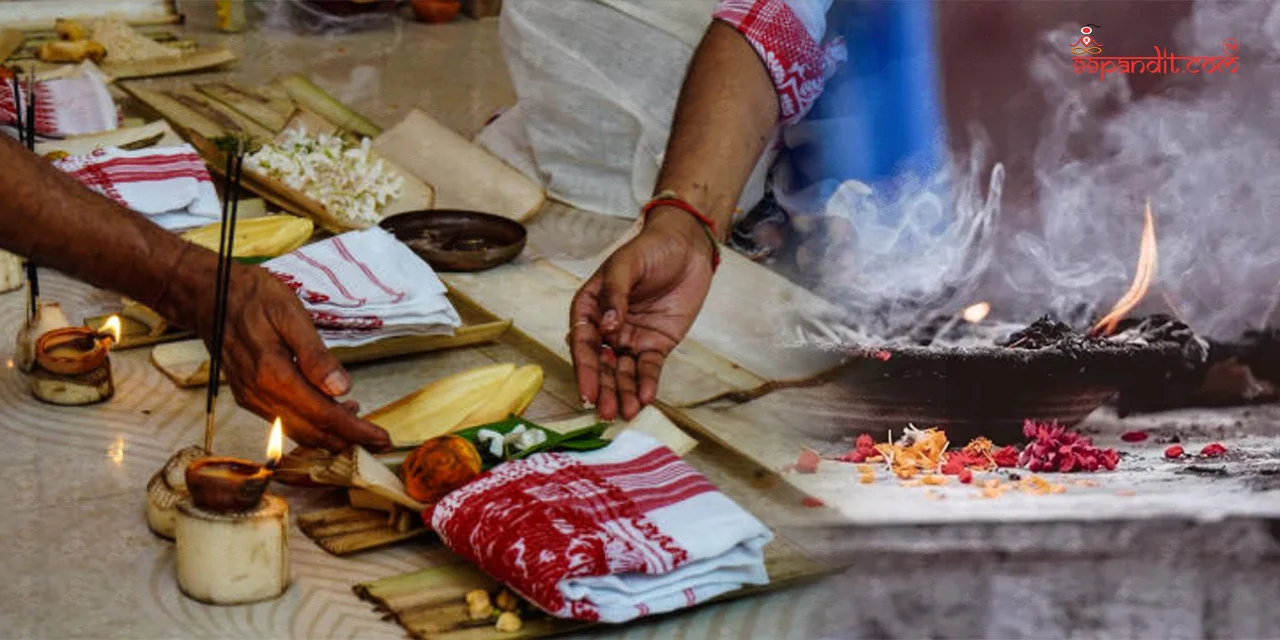
To book a pandit for Terhavi Shanti Puja, you just have to follow the specific steps that are described below:
Simple, right? You know what, not just Treahvi Shanti puja, you can also perform other pujas like Pind daan Puja, Asthi Visarjan Puja, and many more. So do not wait any longer, book a pandit for Terahvi Shanti puja today.
Wait, it’s not over yet. Let’s get a quick eye roll through the things that you need to keep in your mind, before starting Terhavi Shanti Puja:
Remember, Terhavi Shanti puja is done on the 13th day after death. You can take advice from a pandit to determine the auspicious time.
Make sure you have a complete puja samagri like black sesame seeds, ghee, flowers, fruits, holy water, and others. Preparing in advance ensures a hassle-free completion puja.
The area where you are organizing the puja should be clean, properly, and peaceful. It makes the atmosphere accurate for all the rituals.
Close family members should be present during the ritual and participate with utmost devotion and faith. Their presence adds spiritual value to the ritual.
The provision of food, clothes, etc. to the needy people and the Brahmin feeding happens to be part of the process.
They say that this is done in order to attempt to get rid of past sins and to seek blessings.
Lastly, the Terahvi Shanti puja is a spiritual practice that joins the dead soul and the living. It is typically done on the 13th day of the death of the person and is an important rite in the last rites in Hinduism.
The ritual is significant to worship ancestors and lead them to the path of Moksha. It involves several rituals like chanting of mantra, Terahvi Shanti havan, sankalp, and others.
The ritual is not the culmination of the mourning period, but a religious closure to the loved ones that are left behind.
To ensure the puja gets done with the proper vidhi and mantra, it is important to have an experienced pandit who can direct in every step.
For this purpose, you can visit the platform like 99Pandit and book a verified pandit for the Terahvi Shanti puja.
The puja is not just a ritual but a sacred duty that invites peace and blessings to the family.
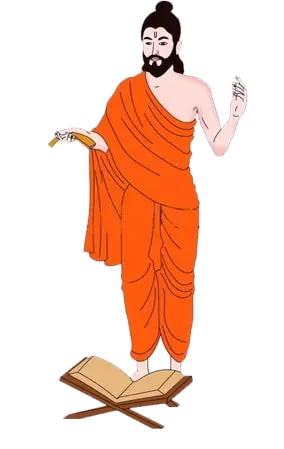
100% FREE CALL TO DECIDE DATE(MUHURAT)

Table Of Content
Filters by categories
All Pujas
Puja On Special Events
Upcoming Pujas
Dosha Nivaran Pujas
Mukti Karmas
Filters by Trending Topics
Filters by Regions
North Indian Pujas
South Indian Pujas